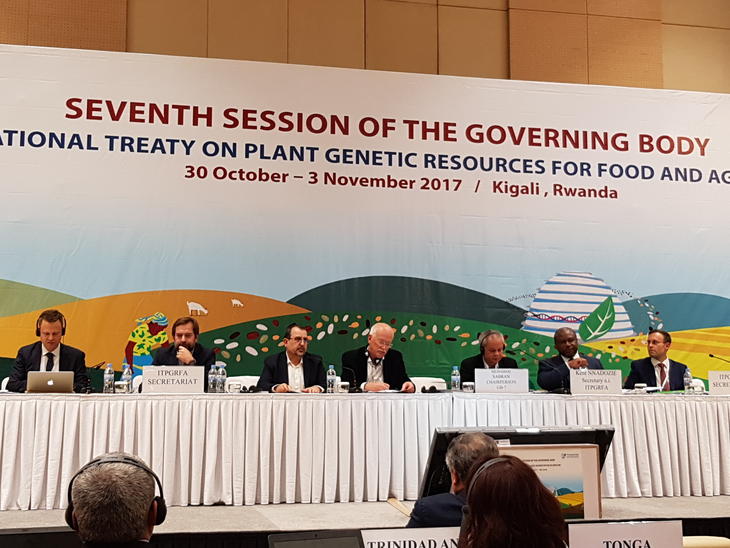
Plant Treaty Negotiations
The Plant Treaty provides the international platform for negotiations on the realization of Farmers’ Rights related to crop genetic resources. Here you can read about the negotiations on Farmers’ Rights at each of the sessions of the Governing Body of the Plant Treaty.
The Plant Treaty Negotiations:
- First Session of the Plant Treaty’s Governing Body, Spain, 2006.
- Second Session of the Plant Treaty’s Governing Body, Italy, 2007.
- Third Session of the Plant Treaty’s Governing Body, Tunisia, 2009.
- Fourth Session of the Plant Treaty’s Governing Body, Indonesia, 2011.
- Fifth Session of the Plant Treaty’s Governing Body, Oman, 2013.
- Sixth Session of the Plant Treaty’s Governing Body, Rome, 2015.
- Seventh Session of the Plant Treaty’s Governing Body, Rwanda, 2017.
- Eight Session of the Plant Treaty’ Governing Body, Italy, 2019.
- Ninth Session of the Plant Treaty’s Governing Body, India, 2022.